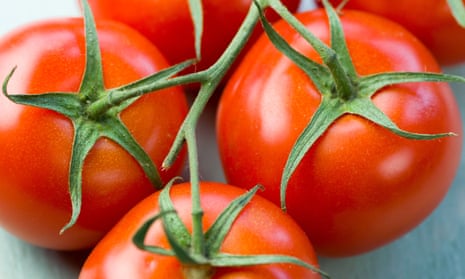People at risk of a stroke or heart attack should reduce that risk by adopting the Mediterranean diet rather than necessarily taking statins, leading doctors are urging.
Eating more healthily, being more physically active and stopping smoking can be just as effective as starting to take the cholesterol-lowering drugs, they have said in a paper published on Monday.
Bodies such as the National Institute for Health and Clinical Excellence (Nice), which advise doctors how to treat patients, should rely less on medication to cut cardiovascular risk.
The call, in an editorial in the healthcare journal Prescriber, has come from a trio of doctors, including the British cardiologist, Dr Aseem Malhotra, a prominent sceptic about the value of statins. They believe doctors should tell patients in detail about the risks and benefits of using statins or the alternative of making non-medical, lifestyle changes, and let them decide which approach they favour.
An estimated 7 million people in the UK are thought to be on statins and their numbers are set to rise because Nice last year lowered their criteria for those it deems may benefit from the drugs. Anyone with a 10% chance of having a stroke or heart attack in the next 10 years is meant to be offered one, where previously the threshold was a 20% risk.
But the two main bodies representing GPs, the British Medical Association and the Royal College of GPs, have voiced serious concern about the NHS advisory body’s updated guidance, even though family doctors are offered cash payments for implementing it. They have warned that the credibility of the quality outcomes framework for paying doctors is at risk because of the new 10% rule and are concerned that the change risks over-medicating some of the population.
The authors’ call has drawn support from some doctors’ leaders. “For most middle-aged people wishing to avoid heart disease, a healthy diet offers a far more powerful, sustainable and enjoyable plan than lifelong statin tablets,” said Prof Simon Capewell, vice-president of the UK Faculty of Public Health.
In the paper they point out that about 80% of cardiovascular disease – which is Britain’s biggest killer, claiming one in three lives – is caused by “modifiable lifestyle factors such as nutrition, physical activity and smoking.”
When doctors are discussing with those in danger of a stroke or heart attack how to reduce their risk, the paper says: “Patients should be counselled about the nature and value of a healthy diet. A Mediterranean diet in moderation, with as little processed food as possible, is a cardiovascular intervention tested in randomised trials and shown to reduce CVD events.”
In addition, “patients should know that physical activities, particularly enjoyable ones, can lead to important, lasting health and quality of life benefits”, and they should also be advised to stop smoking.
While such measures can cost money and be inconvenient they “rarely include significant harm risk, can prolong life, and have the added benefit of substantial non-cardiovascular benefits”.
In contrast “only ... a limited percentage of patients benefit” from statins, which also can have side-effects, such as muscle aches in 5% to 10% of those taking them and diabetes in one in 100 cases. And while they can prevent one in 40 people who have already had a stroke or a heart attack from having another, only between one in 50 and one in 200 relatively healthy people who have never suffered either event live longer as a result of taking statins, they say.
“We should not make treatment dependent on crude thresholds that handle patients in a cold, statistical manner,” said Dr Chaand Nagpaul, chair of the BMA’s GPs committee. “Any decision on treatment should look at wider factors, including lifestyle, and empower patients to make informed choices about their own healthcare choices.”
It was important that GPs have long enough with a patient in a consultation to discuss in detail the different options for countering the risk of cardiovascular disease, Nagpaul added.

Comments (…)
Sign in or create your Guardian account to join the discussion